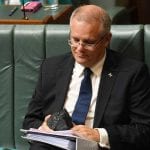Around The Web
Smart meter installations 'need to hit 30 a minute'
Energy firms set to miss government deadline for rollout
Energy suppliers need to triple smart meter installation rates to complete a national rollout by 2020, according to the consumer champion Which?
Large suppliers would have to install 30 meters every minute, every day, for the next two years, to meet the government deadline.
Continue reading...Wildlife Trade Application Portal: Change is coming
Hope is rational – Germany’s radical shift to renewables and efficiency
 German Energiewende demonstrates renewables transition can be economic and social success if it includes efficiency and a pro-active ‘just transition’ – policies that foster new businesses and jobs.
German Energiewende demonstrates renewables transition can be economic and social success if it includes efficiency and a pro-active ‘just transition’ – policies that foster new businesses and jobs.
The post Hope is rational – Germany’s radical shift to renewables and efficiency appeared first on RenewEconomy.
WA’s Synergy says fossil fuel generators not coping with rooftop solar boom
 Synergy says demand “starts and stops” caused by rooftop solar had disrupted operations at its 240MW gas-fired Cockburn power station – one of its newer plants.
Synergy says demand “starts and stops” caused by rooftop solar had disrupted operations at its 240MW gas-fired Cockburn power station – one of its newer plants.
The post WA’s Synergy says fossil fuel generators not coping with rooftop solar boom appeared first on RenewEconomy.
Labor to exploit Morrison’s coal obsessions in new energy policy
 Labor energy policy will attack Coalition's plan for new coal investment, outline the path to 50 per cent renewable energy, and will likely include a focus on storage and energy efficiency.
Labor energy policy will attack Coalition's plan for new coal investment, outline the path to 50 per cent renewable energy, and will likely include a focus on storage and energy efficiency.
The post Labor to exploit Morrison’s coal obsessions in new energy policy appeared first on RenewEconomy.
Know your NEM: The impact of Federal ALP policy, some speculation
 A 50 per cent renewable energy target from Labour would be trivial in terms of new project and investment requirements. But it would have an impact on coal.
A 50 per cent renewable energy target from Labour would be trivial in terms of new project and investment requirements. But it would have an impact on coal.
The post Know your NEM: The impact of Federal ALP policy, some speculation appeared first on RenewEconomy.
Infigen says its Tesla big battery will be ready by April, more “firming” to follow
 Infigen says its Tesla big battery at Lake Bonney will be ready by April, but future battery investments tempered by lack of supportive markets and battery costs.
Infigen says its Tesla big battery at Lake Bonney will be ready by April, but future battery investments tempered by lack of supportive markets and battery costs.
The post Infigen says its Tesla big battery will be ready by April, more “firming” to follow appeared first on RenewEconomy.
Ashurst advises on A$409m refinancing of Collgar Wind Farm
 International law firm Ashurst has advised the lenders on the A$409 million refinancing of the Collgar Wind Farm in Western Australia.
International law firm Ashurst has advised the lenders on the A$409 million refinancing of the Collgar Wind Farm in Western Australia.
The post Ashurst advises on A$409m refinancing of Collgar Wind Farm appeared first on RenewEconomy.
New renewables cost data shuts door on coal power’s CCS escape route
 Latest power generation costs data reveals that coal industry’s preferred climate escape route of promoting CCS on coal power plants has disappeared as a financially viable option.
Latest power generation costs data reveals that coal industry’s preferred climate escape route of promoting CCS on coal power plants has disappeared as a financially viable option.
The post New renewables cost data shuts door on coal power’s CCS escape route appeared first on RenewEconomy.
California paves way for gigawatt-scale Tesla battery to replace gas
 California regulator paves way for gigawatt-scale lithium ion batteries from Tesla and others to replace ageing natural gas power plants.
California regulator paves way for gigawatt-scale lithium ion batteries from Tesla and others to replace ageing natural gas power plants.
The post California paves way for gigawatt-scale Tesla battery to replace gas appeared first on RenewEconomy.
Why predicting the weather and climate is even harder for Australia’s rainy northern neighbours
Ash dieback: Seed orchards could help species recover sooner
NT teenager bitten on leg and arm in second shark attack in Australia over weekend
Boy mauled while spearfishing off Arnhem Land a day after a man was attacked while learning to surf south of Wollongong
A teenager has been attacked by a shark while spearfishing off the Northern Territory coast.
The 17-year-old was bitten on his arm and leg about 30km offshore from Nhulunbuy in Arnhem Land on Sunday morning, NT police said.
Continue reading...Letters: nuclear energy is key to our future
With demand for electricity set to rocket, the UK cannot rely on renewables alone
Your business leader misses the bigger picture, as indeed do other supporters of renewable energy, such as Greenpeace (“Moorside’s atomic dream was an illusion. Renewables are the way to a clean future”).
The bigger picture is that we can expect to see a substantial and sustained increase in electricity demand over the next 20-30 years due to the electrification of transport and heat. Heat alone, by the most conservative estimates, will add 300GW of peak thermal demand, which would add 100GW to the grid, dwarfing the current 65GW or so of peak UK demand. Yes, renewables backed up with energy storage and smart control can make an impact but a significant baseload method will still be needed. As pointed out in the late David Mackay’s excellent book Sustainable Energy – Without the Hot Air, the least bad option of meeting this is likely to be nuclear fission.
Chris Underwood, professor emeritus of energy modelling for the built environment
Northumbria University, Newcastle upon Tyne
Air pollution levels ‘forcing families to move out of cities’
An increasing number of parents are shunning good schools because of the local air quality while some are even looking to move out of cities altogether, as fears over the effects of diesel emissions on health mount.
Last week a major study published in the Lancet found that pollution from diesel vehicles was stunting the growth of children’s lungs, leaving them damaged for life.
Continue reading...Palm oil: One woman's fight to save 'the last place on Earth'
Recycling the old masters – in pictures
Dutch artist Suzanne Jongmans creates photographs that echo the old masters, but with a modern twist: she crafts intricate costumes using recycled plastics, old blankets and used packaging. Jongmans finds inspiration in painters such as Jan van Eyck, Rembrandt and Holbein, whose level of detail she aims to replicate. “When you look at the old masters, you can really see the time that is put into the paintings,” she says. “And that fits with the method I developed.” There is an implicit environmental message in her work but, she says, her primary objective is giving a new life to these old materials. “I’m a collector mostly – I collect all kinds of things, like blankets, wool, things from nature. And I would like all these materials to tell a story.”
Continue reading...Thousands gather to block London bridges in climate rebellion
Protesters plan to close five main bridges across Thames over extinction crisis
Thousands of people have descended on central London for a “day of rebellion” in protest over the looming climate crisis.
People began massing on five bridges over the River Thames from 10am on Saturday. A short time later groups of protesters began to block the roads on the bridges, some of the busiest and most important in the capital.
Continue reading...


